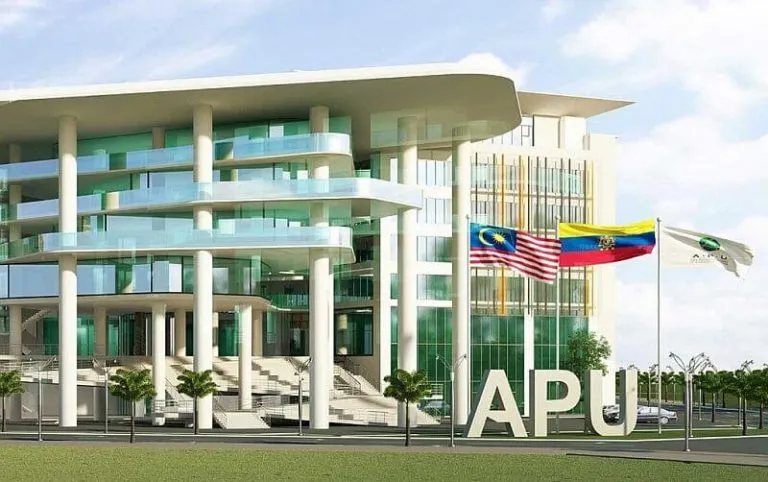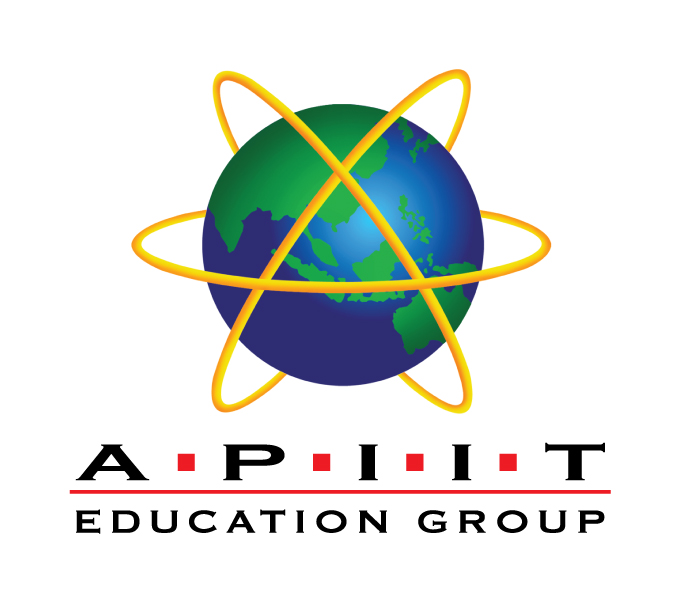| Duration: 3 Years (6 Semesters) |
Awarded by: APU, Malaysia |
Intakes: 24 Sep 2024 | 21 Nov 2024 |
ADMISSION REQUIREMENTS
| GENERAL REQUIREMENTS | |
| DIRECT ENTRY TO LEVEL 1 OF THE DEGREE: | |
| STPM | • 2 Passes in STPM with minimum Grade C (GP 2.0) in any subject with a Credit in Mathematics at SPM.
Note: Candidates who have obtained a Pass in Mathematics, but do not have a Credit Pass in Mathematics at SPM/IGCSE or equivalent, need to take a Pre-Requisite Mathematics module prior or at the beginning of the study. |
| A-LEVEL Overseas qualification that are equivalent to 12th Grade/A Level/HSC are accepted. |
• 2 Passes in A-Level and with a Credit in Mathematics at SPM/ O-Level/ IGCSE or equivalent.
Note: Candidates who have obtained a Pass in Mathematics, but do not have a Credit Pass in Mathematics at SPM/IGCSE or equivalent, need to take a Pre-Requisite Mathematics module prior or at the beginning of the study. |
| UEC | • 5 Grade B Passes in UEC in any subjects including Mathematics.
Note: Candidates who have obtained a Pass in Mathematics, but do not have a Credit Pass in Mathematics at SPM/IGCSE or equivalent, need to take a Pre-Requisite Mathematics module prior or at the beginning of the study. |
| FOUNDATION/ MATRICULATION |
• A pass in Matriculation or Foundation studies with minimum CGPA of 2.0 with a Credit in Mathematics at SPM/ IGCSE/ O-Level or its equivalent.
Note: Candidates who have obtained a Pass in Mathematics, but do not have a Credit Pass in Mathematics at SPM/IGCSE or equivalent, need to take a Pre-Requisite Mathematics module prior or at the beginning of the study. |
| OTHER DIPLOMAS | • Diploma in Science, Technology or Business studies with a minimum CGPA of 2.50 and with Credit in Mathematics at SPM/ IGCSE or its equivalent, can be admitted subject to rigorous assessment conducted by APU.
Note: Credit transfer of modules into a Bachelor’s Degree may apply based on the fulfilment of credit transfer requirements. |
| DIRECT ENTRY TO LEVEL 2 OF THE DEGREE: | |
| ICT RELATED DIPLOMAS | • A Diploma in Computing related areas with a minimum CGPA of 2.50 and fulfilment of requirements for Credit Transfer is subject to approval by the APU Academic Board.
Note: Student with CGPA above 2.0 and below 2.5 may be accepted using rigorous assessment conducted by APU and subject to the approval of the Academic Board. |
| ENGLISH REQUIREMENTS | |
| INTERNATIONAL STUDENTS | • IELTS : 5.0 • TOEFL IBT : 40 • Pearson (PTE) : 47 • MUET : Band 3.5 |
PROGRAMME OUTLINE
This programme is specifically designed to provide students with:
- Familiarity with a broad range of information technologies and how they are used.
- An understanding of frameworks and planning techniques for the strategic management of information systems in organisations.
- The ability to critically evaluate and apply appropriate strategies and techniques to the development of information technologies.
| DEGREE LEVEL 1 |
Students will learn fundamental skills required by every IT professional, and the basic understanding of the underlying computer system through Computer Architecture, operating systems, networking and databases. The modules will also help them develop personal and organisational skills, as well as nurture creativity and innovation.
| COMMON MODULES | |
|
|
| SPECIALISED MODULES | |
|
|
| DEGREE LEVEL 2 |
A broader range of skills will be learnt, in which students will gain a better understanding of frameworks and planning techniques for the strategic management of information systems, programming languages and techniques, and further analysis and design skills. We will further nurture their creativity and innovation as well as independent learning to prepare them for the workplace.
| COMMON MODULES | |
|
|
| SPECIALISED MODULES | |
|
|
| INTERNSHIP (16 weeks) |
Students will undertake an Internship/Industrial Training for a minimum period of 16 weeks to prepare them for a smooth transition from the classroom to the working environment.
| DEGREE LEVEL 3 |
Students will make use of their previous studies and industrial experience to extend their familiarity in a broad range of information technologies and to refine their personal and professional development. Students will enhance their programming skills and move further into the areas of cloud computing and big data. A final year project requires them to investigate and develop a solution for a realworld problem – they will demonstrate their ability to combine technical knowledge, critical thinking and analytical skills to produce a personal achievement portfolio.
| COMMON MODULES | |
|
|
| SPECIALISED MODULES | |
|
|
| MQA COMPULSORY SUBJECTS* |
|
|
|
(*All students are required to successfully complete these modules as stipulated by the Malaysian Qualification Agency.)
|
|
AWS ACADEMY MEMBER INSTITUTION
 |
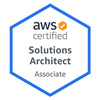 |
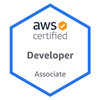 |
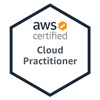 |
Amazon Web Services (AWS) is the world’s most broadly adopted cloud platform offering several fully featured services from data centers globally. As an Amazon Web Services (AWS) Academy member institution, Asia Pacific University of Technology & Innovation offers the AWS Academy cloud computing curriculum through its multi-disciplinary IT degree options that prepares students to pursue careers in the fast-growing cloud computing space and industry-recognized AWS Certifications.
The AWS Academy curriculum is developed and maintained by AWS subject matter experts, ensuring that it reflects current services and up-to-date best practices. Courses are taught by AWS Academy-accredited educators who are trained by AWS to help students become proficient in AWS technology.
The rapid rise of computing is creating a growing number of high-quality jobs at organizations around the world, and the technical skills that students develop through this program will position them well for their careers today and in the future.
| CAREER OPTION WITH AWS ACADEMY MEMBER INSTITUTION |
|
|
CAREER OPTIONS
|
|
COURSE FEES
| Malaysian Students | International Students |
| Year 1: RM 31,700 Year 2: RM 32,800 Year 3: RM 33,800 Total: RM 98,300 |
Year 1: RM 32,000 (USD 7,270) Year 2: RM 33,100 (USD 7,520) Year 3: RM 34,400 (USD 7,820) Total: RM 99,500 (USD 22,610) |
* Fees stated here do not include Deposits and other Miscellaneous Fees. Please refer to Fee Guide for details.
MQA ACCREDITATION
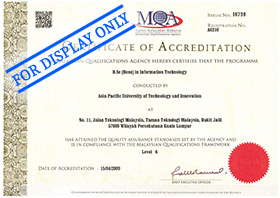 |
| (R2/0611/6/0038)(08/25)(A6210) All information is correct at the time of publication, but is subject to change in the interest of continuing improvement. |

